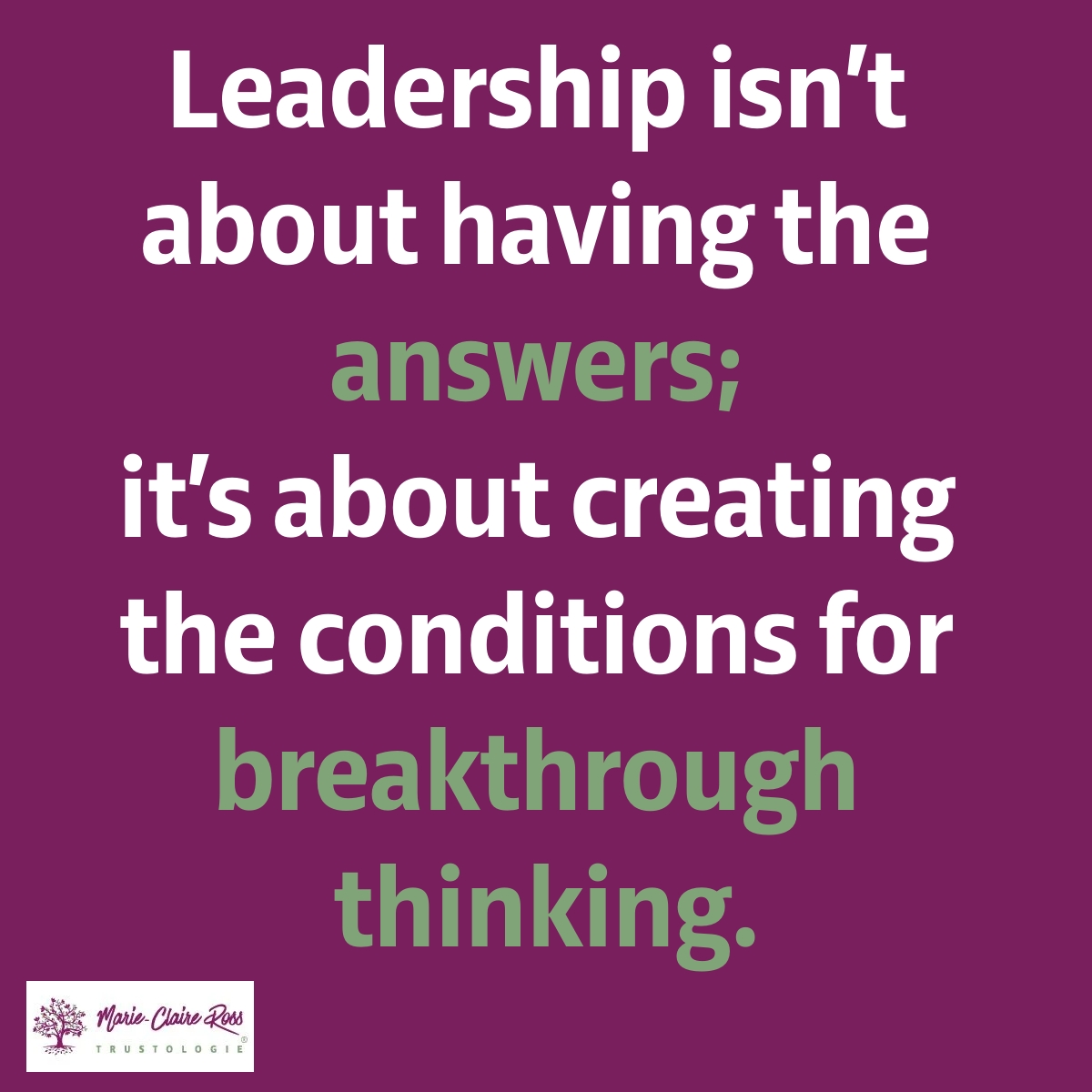8 min read
Beyond the "Why": 5 Coaching Secrets to Unlock Curiosity in Leadership
When my daughter was 17 months old, she discovered a superpower: the word “Why?”For the next two years, it was her response to almost everything.
Develop leaders, strengthen executive teams and gain deep insights with assessments designed to accelerate trust and performance.

Transform how your leaders think and perform with keynotes that spark connection, trust and high-performance cultures.

Explore practical tools, thought-leadership and resources to help you build trusted, high-performing teams.

Trustologie® is a leadership development consultancy founded by Marie-Claire Ross, specialising in helping executives and managers build high-trust, high-performing teams.

3 min read
Marie-Claire Ross : Updated on February 13, 2023

As humans, we want to be with other humans and be part of something bigger and better than we can create on our own. We love been part of an energetic team that has plenty of solutions, excited discussion and activity.
A team that trusts one another creates magical team coherence. That wonderful space where you are all in flow, moving as one, reading each other’s intent and body language. Like a group of professional dancers effortlessly moving in harmony, in tune to the rhythmic beats of a song.
It creates a positive buzz, a hum, an energy, that we crave. And where we thrive as human beings. A place where we feel energised and empowered. Connected and aligned through shared identity and purpose. Where we feel valued, creative and safe to share our opinion. A place where we feel that all is possible, that we’re in this together and that the hard work is worth it.
Despite the trials and tribulations, it’s an unforgettable experience that we hold deep in our hearts for the rest of our life. Feeling trusted makes us proud of our achievements and motivates us to keep going when things get tough.
So what does it mean to be a trusted leader?
It means you are creating a thriving, collaborative environment where everyone works together to do their best work in service of a shared goal. You lead through trust.
And how do you know if you are trusted? Through observing how people interact with you. People's actions around us are always more truthful than words. They're a good litmus test for trust and much more reliable than just assuming we are trusted. Because when we do that we are more likely to miss telling signs that people aren't trusting our intentions.
Here are six observations:
1. People want to Work with You
People want to work with you because they know you are fair, will treat them right and will support them in their career aspirations. You become a talent magnet.
People want you to lead them because you get 100 percent out of them. They feel as though you amplify their intelligence, while other low trust leaders reduce their competencies.
The result is that relationships feed off one another and people want to do more.
If you're in a big organisation, expect the word to get out and people will want to be in your team. You'll also find that no-one wants to leave.
2. People ask You for Advice
When you are considered competent at your job and willing to share learnings, people will come to you for advice. And it shouldn't be just your closet buddies at work. It should also be people across you organisation.
People trust your opinion and know you will give them the unvarnished truth and not come from personal bias. The know they will get insights and information for you that will change their world.
Not only that, you'll find that people want to collaborate with you and your team.
What's your experience?

8 min read
When my daughter was 17 months old, she discovered a superpower: the word “Why?”For the next two years, it was her response to almost everything.

11 min read
I have a friend who often finds herself at the mercy of her emotions. Recently, she called me to rehash a confrontation she’d had with a group of...

9 min read
True leadership presence isn’t a performance or a set of charisma hacks; it is the felt experience of who you are being in the room. By cultivating...

Despite what collaboration software experts would have you believe, few companies have big issues with trust within teams. When it comes to improving...

If you do a search on LInkedIn for Trusted Leader, you'll find around 1 million people have the audacity to label themselves "Trusted Advisor,"...

Most leaders understand the importance of building trust in their teams and across them. Yet, throw in a bit of risk or uncertainty and leaders...